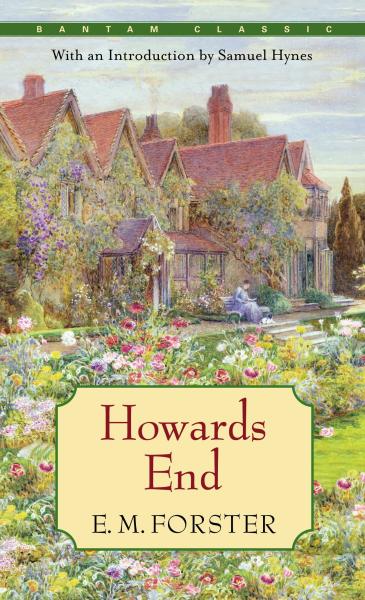Description
What makes this masterpiece a pure delight for contemporary readers is its vibrant portrait of life in Edwardian England, and the wonderful characters who inhabit the charming old country house in Hertfordshire called Howards End. This cozy house becomes the object of an inheritance dispute between the upright conservative Wilcox family and the Schlegel sisters, Margaret and Helen, sensitive and intuitive women loved by men willing to leap wide social barriers to fulfill their ardor. Through romantic entanglements, disappearing wills, and sudden tragedy, the conflict over the house emerges as a symbolic struggle for England’s future. Rich with the tradition, spirit, and wit distinctively English, Howards End is a remarkable novel of rare insight and understanding. As in his celebrated A Passage to India, E. M. Forster brings to vivid life a country and an era through the destinies of his unforgettable characters.
With a new Introduction by James Ivory
Commentary by Virginia Woolf, Lionel Trilling, Malcolm Bradbury, and Joseph Epstein
"Howards End is a classic English novel . . . superb and wholly cherishable . . . one that admirers have no trouble reading over and over again," said Alfred Kazin.
First published in 1910, Howards End is the novel that earned E. M. Forster recognition as a major writer. At its heart lie two families—the wealthy and business-minded Wilcoxes and the cultured and idealistic Schlegels. When the beautiful and independent Helen Schlegel begins an impetuous affair with the ardent Paul Wilcox, a series of events is sparked—some very funny, some very tragic—that results in a dispute over who will inherit Howards End, the Wilcoxes' charming country home. As much about the clash between individual wills as the clash between the sexes and the classes, Howards End is a novel whose central tenet, "Only connect," remains a powerful prescription for modern life.
"Howards End is undoubtedly Forster's masterpiece; it develops to their full the themes and attitudes of [his] early books and throws back upon them a new and enhancing light," wrote the critic Lionel Trilling.
With a new Introduction by James Ivory
Commentary by Virginia Woolf, Lionel Trilling, Malcolm Bradbury, and Joseph Epstein
"Howards End is a classic English novel . . . superb and wholly cherishable . . . one that admirers have no trouble reading over and over again," said Alfred Kazin.
First published in 1910, Howards End is the novel that earned E. M. Forster recognition as a major writer. At its heart lie two families—the wealthy and business-minded Wilcoxes and the cultured and idealistic Schlegels. When the beautiful and independent Helen Schlegel begins an impetuous affair with the ardent Paul Wilcox, a series of events is sparked—some very funny, some very tragic—that results in a dispute over who will inherit Howards End, the Wilcoxes' charming country home. As much about the clash between individual wills as the clash between the sexes and the classes, Howards End is a novel whose central tenet, "Only connect," remains a powerful prescription for modern life.
"Howards End is undoubtedly Forster's masterpiece; it develops to their full the themes and attitudes of [his] early books and throws back upon them a new and enhancing light," wrote the critic Lionel Trilling.
Last updated on
Product Details
- Random House Publishing G Brand
- Oct 1, 1985 Pub Date:
- 0553212087 ISBN-10:
- 9780553212082 ISBN-13:
- 400 Pages
- 6.9 in * 4.2 in * 0.85 in Dimensions:
- 1 lb Weight:




